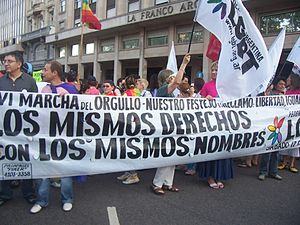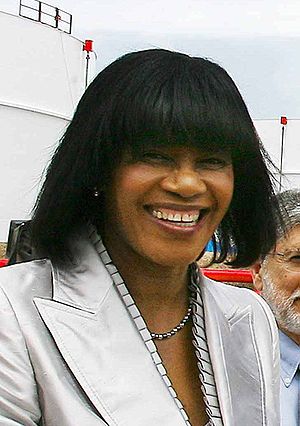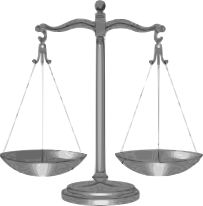By Paul Canning
The 'ex-gay' religious movement has expanded beyond its American origins throughout the world.
Despite its evident shrinking in the US, with
reports that the oldest ex-gay group Exodus International is on the verge of "social and financial oblivion" and
widespread mockery of 'therapy' operators like Michelle Bachmann's husband, in the rest of the world it is growing.
Reports
emerged in October
of over 200 'ex gay clinics' in Ecuador, some of which activists had
managed to get closed after the torture they were practicing was
exposed. It also emerged that the Hong Kong government
is paying for so-called Sexual Orientation Conversion Therapy (SOCT) for LGBT citizens.
In Uganda, it is US 'conversion therapy' Christianist evangelists
who have been behind those pushing the 'Kill gays' bill. Because of them the idea that 'the gay' can be cured is widely believed throughout Africa.
Now the same lies pushed by the same American 'ex-gay' propagandists are finding an audience in the Caribbean.
A
full page ad
published in the leading Trinidad newspaper Sunday Express titled 'What
you should know about homosexuality' has outraged local activists.
They are calling for any further ads to be blocked by local media
standards bodies.
Wrote local activist Brendon O'Brien in a letter to the newspaper:
They
looked at this...and thought it was okay to publish? Not that something
is wrong with publishing a religiously slanted ad, but one that openly
discredits a community, questions their movement towards rights and
even, in a sense, undermines their actual existence is definitely a
problem. And this tried to do just that, and in a respectful and
pseudo-scientific way as well. The publisher should have seen this and
seen that it would've caused a problem.
A
similar ad was published in Jamaica's newspaper on World AIDS Day. The blog Gay Jamaica Watch
pointed out
that the false statements in these ads "would only justify the stigmas
that people who experience same-sex attraction are not "normal" but are
all sexual defiant, mentally unstable, promiscuous and
self-selecting."
That Jamaican advert was followed up by
a symposium
10 December organised by the Lawyers' Christian Fellowship and attended
by many leading Jamaicans, including two judges of Jamaica’s Supreme
Court and the Attorney General, and with American and British
Christianist speakers. This event was aimed squarely at fighting the
growing movement for decriminalization of homosexuality on the island,
and throughout the Caribbean. That movement can now count the support of
the head of Jamaica's Anglican church, who has
called for the repeal of the colonial era anti-sodomy laws.
Writes Jamaican activists Maurice Tomlinson:
"During
the nearly 7-hour symposium, the presenters extolled the virtues of
Dominionism — the belief that countries must be governed by a
conservative Christian understanding of biblical law — and cautioned
(actually, more like threatened) Jamaican Christians that if they don't
organize a counter-offensive against the militant gay agenda sweeping
the world, their beloved country will be overrun by aberrant ideas “hell
bent” on destroying marriage, children, and, of course, Christianity."
Tomlinson reported that "the entire proceedings were tightly
controlled" and organisers tried to stop anyone offering a correction
when false information was presented.
Tomlinson is one of those
taking Jamaica's anti-gay law to the Inter-American Commission on Human Rights. The law in Belize is
also being challenged as unconstitutional.
Says veteran Trinidadian activist Colin Robinson of the apparently co-ordinated anti-gay Caribbean efforts:
"The
region is in the cross-hairs of religious groups in the North who think
their battles for Christian Dominion ought to be waged on the bodies of
Caribbean gay and lesbian men and women, just like they have done on
the corpses of our Ugandan brothers and sisters."
But Robinson also pointed out that:
"In Trinidad, however, just like happened when Phillip Lee from His Way Out Ministries
came a year ago,
what's happening is that heterosexual people, especially young ones,
are mobilizing to say: 'This is wrong and harmful, and we will stand
against it'. They are doing a much better job than we are of creating
advocates for GLBT rights."


































 Join our page
Join our page

